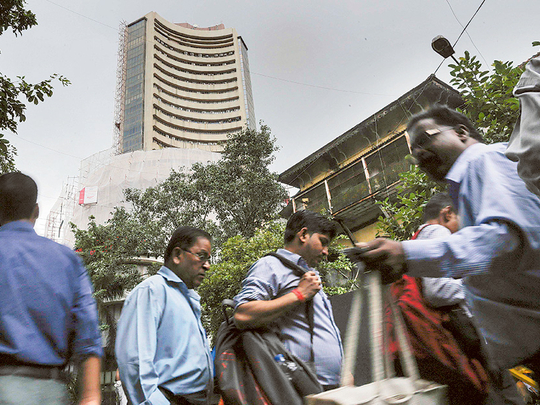
Dubai: HSBC Asset Management wants to take opportunities from the noise.
Following demonetisation of high denomination currency notes, which many called as a disruption to the economy, fund managers are using the situation as an opportunity to deliver extra returns for investors.
The fund manager is selectively positioning in the housing finance companies, and consumer companies, which were battered by expectations that demand would fall off the cliff.
“De-monetisation was the big shock event, some other event like Brexit or the US elections were more binary events. expanding tax base, increase tax revenues, and help to boost infrastructure projects,” Sanjiv Duggal, Asia-India equities head at HSBC Asset Management told Gulf News in an interview while on a field visit to Dubai.
“What caused us to make changes on the margins was demonetisation as it was an expected event. We tend to be a contrarian investor, we looked at stocks which had fallen sharply and we saw the opportunities which were different from the market,” Duggal added.
“The move towards GST, and coupled with demonetisation which would move the informal economy to formal economy, and that would benefit the listed companies. Less use of cash, and more usage of the banking system would mean that more of the economy is getting captured and reported, which would benefit listed companies,” said Duggal.
For example, HSBC Asset Management felt that there is value in housing finance companies.
“The common consensus was that property prices would fall in India. Our take was that reported property prices would rise compared to the actual price, because the amount of informal dealing in property would shrink because of demonetisation,” Duggal said, adding “we looked at housing finance companies and thought that reported income would go up because of GST and demonetisation”.
This would also feed in terms of higher sales of insurance and mutual fund products.
“Through that the opportunities in the whole financial markets, more sale of products in form of bank savings, boost to infrastructure as well, targeted subsidies, removing the burden from oil and gas companies,” he added.
Valuations
The Bombay Stock Exchange index has gained 3 per cent since demonetisation came in effect on November 8, but the index is still near the peak of 30,024.74 struck in March 2015.
But despite near peak levels, HSBC Asset Management said that still there are attractive pockets of valuations.
“For the banking sector for example, India has gone through a big bad debt cycle, and with the improvement of economy, we have seen the bottom of the cycle and the recovery is underway. We are overweight financial companies, housing finance companies,” Duggal said.
HSBC has de-rated technology sector on concerns over salary levels in the US. “But stocks are at very attractive valuations at a decade low, and they have above average dividend yields and sitting on net cash,” he added.
Another fund manager with Barings Asset Management is also focusing on growth stocks.
“We continue to focus on high growth stocks where the growth is relatively unrecognised by the market over 3-5 years and which are also available at a reasonable price,” Ajay Argal, Head of Indian Equities at Baring Asset Management said.
Factbox: Double digit growth
Asian equities also offer value, according to HSBC Asset Management, due to double digit growth in earnings of companies.
“For the last three years 2 per cent on average, we have seen earnings growth of 13 per cent, and return on equity improve for Asian companies,” Duggal said.
The fund manager is bullish on companies such as memory chip makers, suitcase makers and natural beauty companies.
“A lot of the noise doesn’t impact consumption,” he added. Plus average valuations are 20 per cent lower than historical valuations.
“In Asia we have a good mix of developed markets like Hong Kong, Taiwan, and developing markets like India, China Philippines and Indonesia,” he added.











